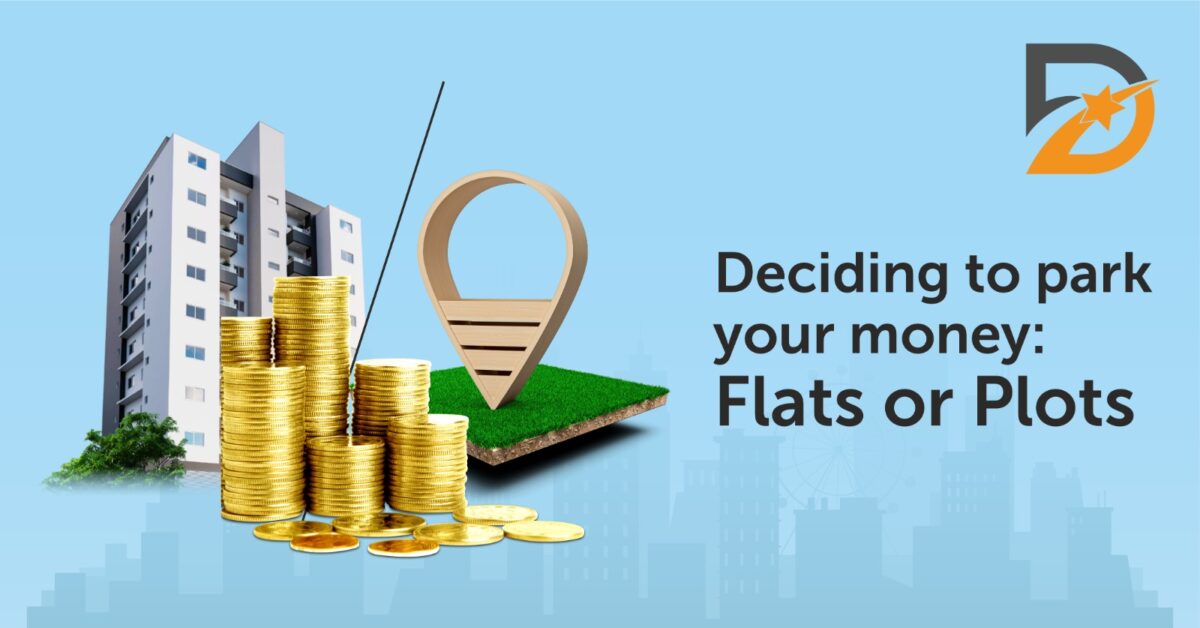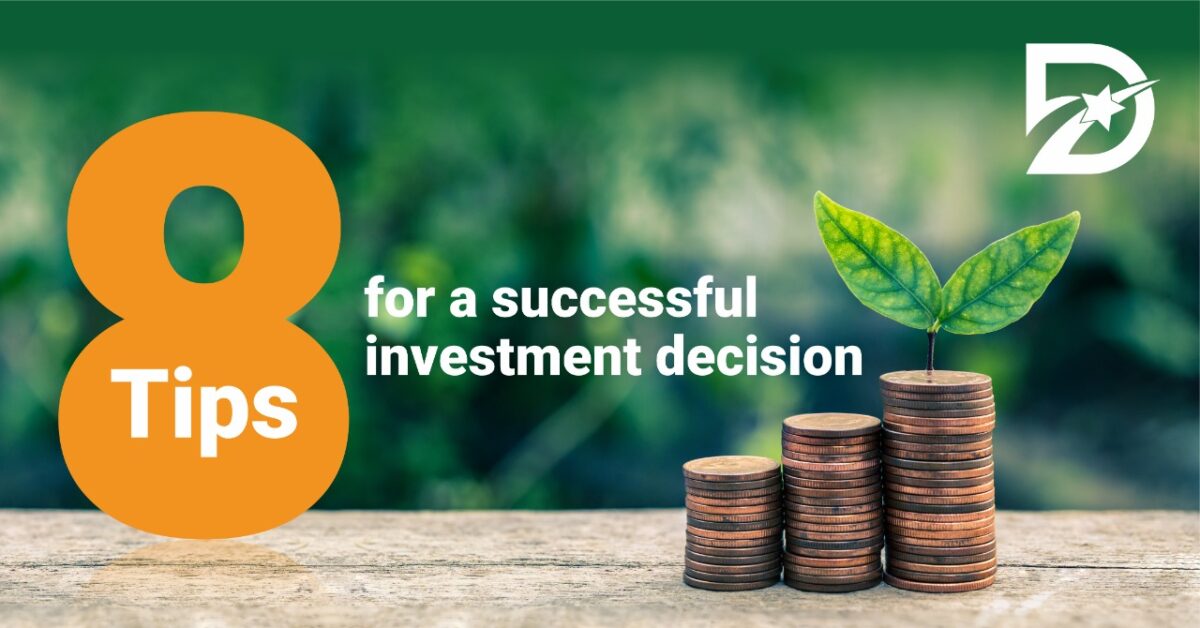As a result, investors are always on the lookout for low-risk strategies to boost their holdings. When it comes to real estate, there is plenty of room for creative speculation. Putting money into real estate is no easy task. You should be aware of the potential dangers before becoming engaged.
If you’re diligent and patient, though, real estate can be a highly profitable investment. Despite the inherent dangers and costs, real estate investment is a safer bet than more conventional markets like the stock market.
Here, we look at some of the pros and cons of real estate investments.
Pros
1. Easy cash flow: If you acquire a property for investment purposes and decide to rent it out, you will receive rental income. This income source could be put towards the mortgage, saved for the future, or used for any number of other purposes.
2. Tax benefits: There are a number of deductions and credits you can claim on your taxes thanks to home loans. Purchasing a property is a wise investment, and the Indian government actively encourages this by providing tax breaks for mortgage interest payments under Section 80C.
3. Safe and Secure: As the value of real estate often doesn’t fluctuate frequently like that of other investments, buying it won’t keep you plagued with frequent checks and decision making. Investing in real estate provides a physical asset with measurable economic worth. Both personal and commercial use are viable options for getting the most out of your investment.
4. Value appreciation: It’s easier to make a snap choice to sell when the market is rising and your property’s value is increasing. Selling at a later date for a handsome profit after real estate value appreciation is common. Investment in real estate is secure since it generates a continuous income stream.
Cons
1. Suitable for long-term only: Real estate can’t be sold quickly for emergency funds. Buying and selling properties takes time, but if you’re patient, you’ll make money. Yet, you must have a long-term investment strategy, do your research, and diversify your portfolio.
2. Costs of maintenance: The owner must pay for property maintenance even if they rent it out. Property upkeep costs vary by types of properties. There are also entrance and exit costs. RERA guidelines vary charges for property registration and stamp duties by state.
3. Requires huge capital: If you want to invest in real estate, you should save up a lot of money for the down payment and closing costs as these have to be paid upfront while buying the estate.
In all, look for alternative options if you don’t know much about gold investment or equities. Real estate is the only investment where positives outweigh drawbacks and provide optimism in difficult times.
Category: Plots
Deciding to park your money: Flats or Plots
One of the greatest purchases you’ll ever make is a home. However, it requires a sustained outlay of resources. Whether it’s your first time buying a home or you’re a seasoned pro, you’ll likely run into confusion when deciding whether to buy a plot of land or a flat.
Before making a decision, it is important to weigh the pros and cons, considering aspects like the accessibility of funding, the potential for large returns, tax advantages, etc. This article provides a more in-depth look at the advantages and disadvantages of these two types of property investments.
Below is a discussion of the main factors that might help you to make an informed decision:
Value enhancement: Flats and land, in general, will both increase in value over time. There will be more people in the neighbourhood and higher demand for your property as a result of the addition of any form of transportation infrastructure, be it a metro line or a road.
In general, the value of flats rises over time as rising rental yields cause their market price to grow. The value of plots tends to rise due to limited supply, and rapid infrastructure development—especially in larger cities—also causes increases in land prices.
Returns: How do earnings change between a plot and a flat? It is possible to earn rental revenue from a ready-made home immediately after purchasing it. But until you build a house on the land, you won’t see any rental money.
However, if you construct an apartment building on your site and sell the flats separately, you can expect to see substantial profits over time.
Modification: A piece of land does not degrade with age, but a flat may. As a result of normal wear and use, it’s not uncommon for homes to need some sort of repair work, such as a renovation or even a complete rebuild.
A flat cannot have its size increased or its layout altered in the future. Plots, on the other hand, provide more options for the type of building that may be constructed on them, whether it be a home or a commercial establishment.
Taxation: Those who use a house loan to purchase a flat are eligible for a tax break of up to Rs. 1.5 lakhs on the principal amount they pay. On top of that, you can write off interest payments of up to Rs. 2 lakhs. Deducting interest paid on a plot of land is only possible once the building has been finished.
Which one is better?
Both plots and flats have their benefits and drawbacks, so it’s important to weigh them both before making a decision. Invest in a piece of land in a desirable area if you have limited cash for investment. You should expect a big return on your investment because they appreciate at a higher rate than flats.
With plots, you get higher flexibility to build a structure of your own choices and preferences. Hence, plots offer more autonomy.
Moreover, in contrast to flats, where ownership may not be obtained for months or even years, the land is typically ready for possession. Your plot will likely be ready for possession before a flat if it is located in a township.
Tips to be selective and Smart in the Year 2023 Investments
We are all anxiously anticipating 2023 and expecting that it will provide some much-needed relief and stability to the real estate market after two turbulent years. The good news is that most analysts believe that over the course of the next year, the market will shift from being a seller’s market to one that is more neutral. Accordingly, the sharp increase in property prices and mortgage rates will eventually come to a stop. However, the repercussions of the trends from 2020–2022 will still be felt by people looking for profitable investment opportunities in 2023.
Therefore, amidst all of this, we are sharing four simple tips investors may take right away to get ready for real estate investment in 2019.
1. Set up your funds.
The first step in real estate investing is always to understand your finances. Examine your current savings, income, and outgoings and consider how you believe these may change in the upcoming years. Then, based on your current financial situation, you should evaluate how much you can invest in an investment property. The down payment, other closing costs, monthly mortgage payments, and other upkeep costs should all be included in your budget.
2. Looks for affordable lending alternatives
The financing strategy you utilized to purchase your investment property has a big impact on its viability and profitability. Because of this, you must start looking for financing solutions immediately if you want to make a real estate investment in 2023.
Secured loans, private money lenders, crowdfunding, syndication, and partnerships are a few choices to consider. Proptech (property tech) platforms that provide financial solutions to real estate investors are on the rise, and they may undoubtedly make the process simpler and easier to understand, especially for beginners.
3. Keep an eye out for the top markets.
The local specificity of the real estate market received increased attention as a result of the outbreak. The experiences of secondary and tertiary markets are very dissimilar from those of primary markets. Many of the big city markets for long-term rents and ownership started to cool as people moved to smaller towns and cities with lower infection rates, laxer lockdown measures, and more affordable real estate costs. The rising popularity of working from home contributes to this national pattern. Similar to this, guests at short-term rentals frequently eschewed big cities in favour of rural places.
4. Include real estate tools in your Portfolio.
The one factor that has undeniably defined the real estate market over the past 20 years is the broad embrace of technology in all sectors of the sector. Even more significant than how technology is changing how real estate agents, brokers, and property managers conduct business are the consequences on investors.
Tech-based apps have revolutionized the search and analysis of property investments through the use of big data and AI. Through tokenization, they have boosted the number of chances for partial investments and even made it possible for small-scale investors to take part in commercial real estate crowdfunding.
In conclusion, we may anticipate that the 2023 real estate market will continue to be challenging. However, by following these four tips, investors can be better equipped to overcome these challenges and choose winning investments.
Factors that affect Farmland
Values
Almost two decades ago, farmland prices were consolidated with little to no buyers. One reason behind this could have been regulations for preventing land ownership concentration. Another reason could be that buyers had limited reasons to purchase land. However, looking at the present statistics, one can say that the times have changed and the outlook of buyers toward purchasing farmlands is continuously changing for the better.
The demand and supply in the market play a major role in deciding the prices for farmland. Demand greater than supply leads to higher prices while demand lesser than supply leads to decreased prices. Let us now take a look at some of the major factors that affect the demand for farmland and ultimately affect farmland prices:
1. Growing demand for houses: There are two things that make investors want to buy farmland. First, liberalization increased the number of jobs and incomes and made more people want to buy homes. Second, until the middle of the 1990s, almost everyone bought a house with cash. Around the year 2000, the credit housing market started to grow. This has brought a huge number of new people into the housing market. This has made land prices go up. As builders and buyers move to towns and villages, their demand drives up the prices of farmland faster than other financial and real assets.
2. Profitable Investment: Even investments in urban property haven’t done as well as those in farmland. Land that is only used for farming appreciates faster. This has made investors a second group of people who want to buy.
3. Commodity prices: When the prices of commodities like grains are low, the farmers lose their ability to spend much on land. This decreases the demand for land and leads to a decrease in prices.
4. Location: Location plays a key role in any real-estate purchase decision. In India, farmlands are mostly concentrated in rural or semi-urban areas that have little to no development. Still, people started buying land far from cities when they saw land prices in peri-urban areas going up because they thought they would make a lot of money when the city grew. In the same way, businesspeople in small towns knew they couldn’t buy land near big cities, so they started buying land on the edges of their own towns. Their bet is that rates can only go up because as the population grows, there will be less land to go around.
5. Soil type: If the quality of the soil of any particular farmland is good, it is likely to retain a value that is stronger and longer than land with low-quality soil.
6. Stock market: If the stock market is bearish, many investors look for alternative ways to invest their money for better returns. Investing in farmland is one such investment option. This too increases the demand and prices of farmland.
8 Tips for a successful Investment Decision
Investing the money, you saved up with a lot of hard work considerably gets you in a situation where you are set to keep it safe and bring in the best possible profits in your wallet. Making the right investment decisions is the key to achieving the same. In this article, we aim to give you the best possible tips on how to make successful investment decisions.
Know it all.
Before making any kind of investment decisions open the barricades of your cognition and let more knowledge get in. The more you research, the wiser you become in terms of making a decision.
Have a plan.
Making investments is a long-term process which requires adequate time frame management and the knowledge of the amount of risk the investor is ready to tolerate. Before arriving at a decision, don’t forget to have a plan that includes all that is required to get you profits in the long run.
Choose the right markets.
With ample markets out there to invest in, there are no shortages of options. However, one must preferably pick markets that offer more returns and lesser risk. While investing in stocks, one can be at a high rate of risk due to market fluctuations. Whereas, making open land investments can offer lesser risks while giving you better ownership facilities. However, as an investor, dividing your investments into different spheres can help you achieve a lesser risk potential.
Study the markets thoroughly.
Once you decide the type of investment you want to make, study the market and its ups and downs thoroughly along with how they work and what will get you the most out of your investment in that particular market.
Beware of scams.
Always double-check everything before signing agreements and making commitments. Investing is a professional sector and thus relying on someone based just on their behaviour or sweet talks can be a risky business. Check all documents and beware of scammers to keep your money safe and make the right investment decisions.
If it’s real estate, be real.
Real estate investments are more stable and ask for lesser hassles. A good study of real estate gives you enough insights on investing righteously based on land locations, the value of the property, investment horizon, expected cash flow or profits and of course the market functioning.
Selection of properties.
The one question you must always ask yourself before investing in real estate is what type of property you are willing to invest in. While an already-built property offers you different kinds of profits, an open land investment gives you more opportunities to expand your investment the way you desire.
Patience is the key.
As an investor one must be aware that investment in any kind of market takes a long time to bring you profits of considerable size. Sitting back and overseeing your investments while making the required modifications is the key to pocketing the most returns and the make best out of your investments.




